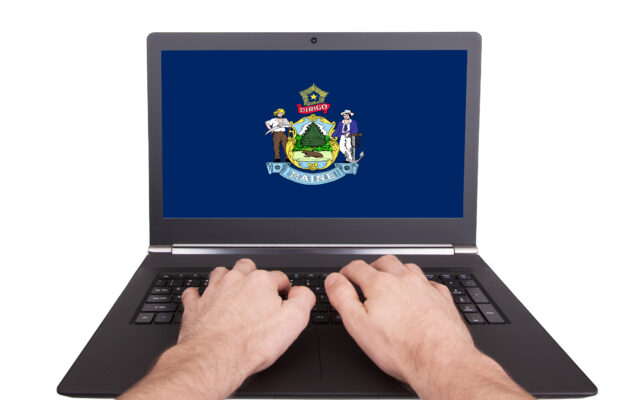
America needs better broadband access
By Christina Theriault
As the United States begins to recover from the COVID-19 pandemic, we have an opportunity to see where our systems were stressed, and identify ways to build back better. Broadband access for Maine’s rural communities is one of the investments we can make now that will pay dividends far into the future.
In 2020 everything went virtual: school, work, social engagements, religious service and even health care visits, were all conducted over the internet using video conferencing technology. As we adjusted our habits and rose to the challenge, our internet systems held their own through a 27 percent uptick in usage nationally.
But far too many rural Americans were faced with an entirely different challenge: participating in a virtual world without access to broadband internet.
In rural areas, residents of all ages flocked to library and school parking lots in search of high-speed internet connections. As a family nurse practitioner based in Aroostook County, I conducted a lot of visits with patients by phone from their cars, because their home internet was not strong enough to maintain our connection. Having personal conversations about your health care from your car in a public parking lot is not ideal.
I also conduct telehealth visits by old-fashioned landline, because cell service and internet access are just not available for many of my patients, due to cost, geography, or both. High-speed internet access has the ability to revolutionize health care delivery and increase access for millions of Americans, but not if they can’t access the technology and infrastructure to take advantage of these advances.
And health care is far from the only issue affected by the stark digital divide between rural and urban internet access. For students, falling behind now can leave them permanently behind their peers. In a Michigan State University study that looked at eighth to 11th grade students in rural school districts, students without broadband in their home had relatively lower grades, completed less homework and had worse digital skills. Students in the study with high-speed internet access had an average of a half letter grade higher than their unconnected peers. Crucially, students who did not have high-speed internet at home were less likely to plan to attend college or a university, a move that would potentially reduce their future earning potential over their lifetime.
The pandemic has shown clearly that many Americans will be left behind from the future unless we deliver the bold action this moment demands. We need to make it a priority to bring broadband access to the millions of Americans who don’t have the infrastructure to get online.
We know our current broadband infrastructure is one of the best in the world. We need our elected leaders to develop comprehensive solutions to the digital divide, solutions that make broadband more affordable for low-income families, meaningfully fund digital literacy programs, and bring infrastructure to every American, regardless of where they live.
Despite wide coverage in the United States overall, high costs and low population densities have slowed down broadband expansion in rural communities. We need the government and private companies to work together to prioritize bringing broadband infrastructure to those who are truly unconnected — not spending taxpayer dollars building an extra network in places that already have competing providers and strong networks.
It is my hope Congress and this administration will take bold action by applying these common sense solutions to closing the digital divide for all Americans once and for all so everyone can share in the power that the internet brings — no matter where they live.
Theriault of New Canada is a nurse practitioner with Maine Family Planning and adjunct faculty member for the nursing program at the University of Maine, Fort Kent.